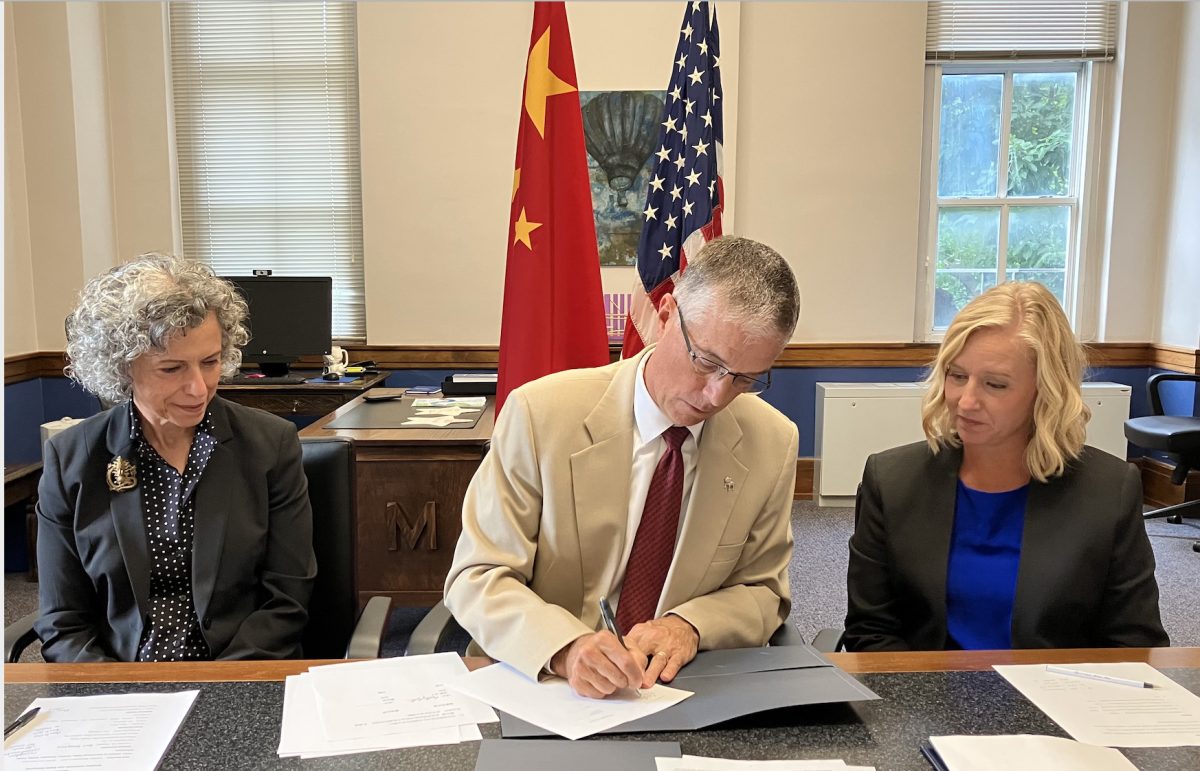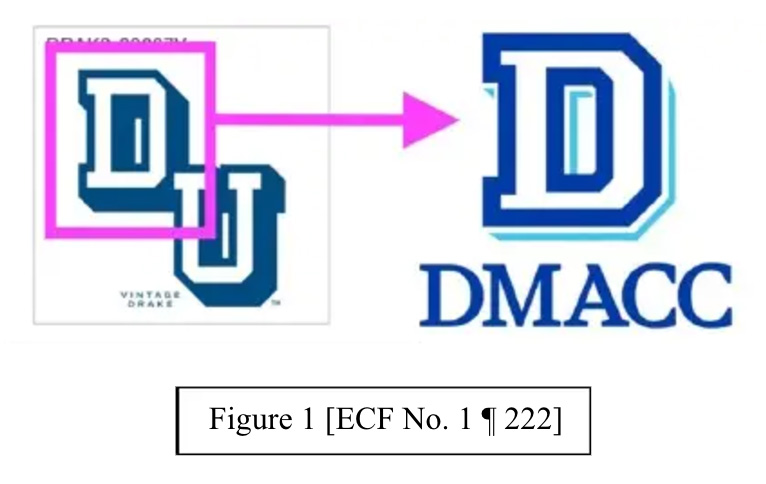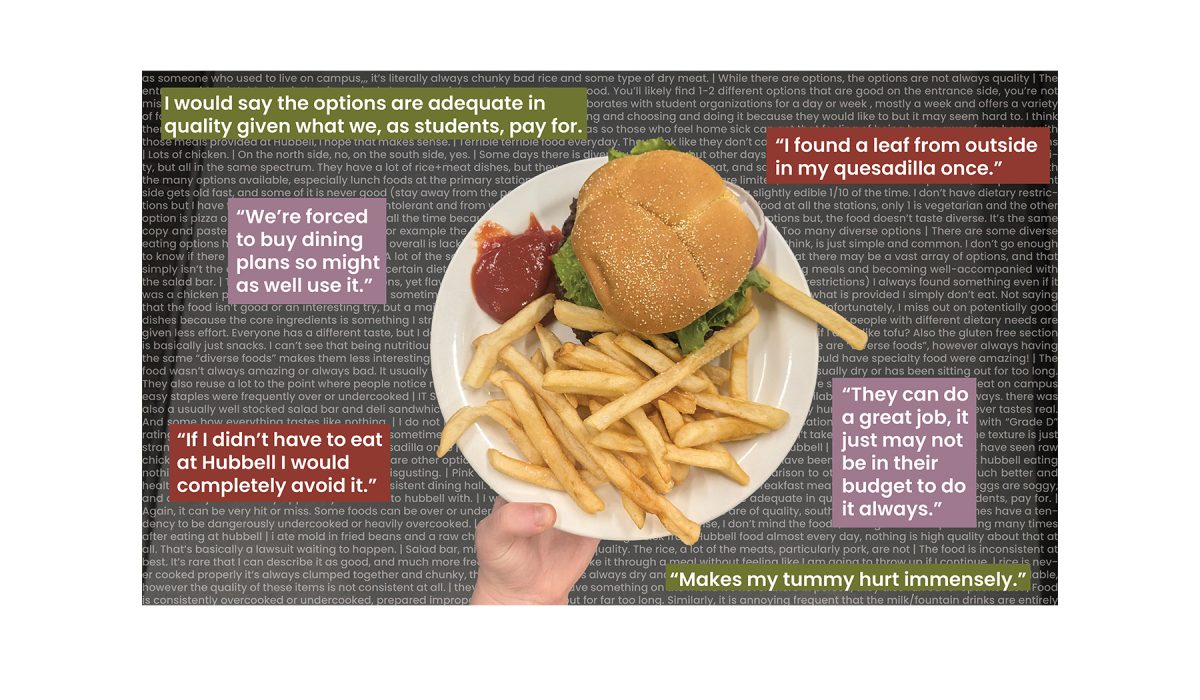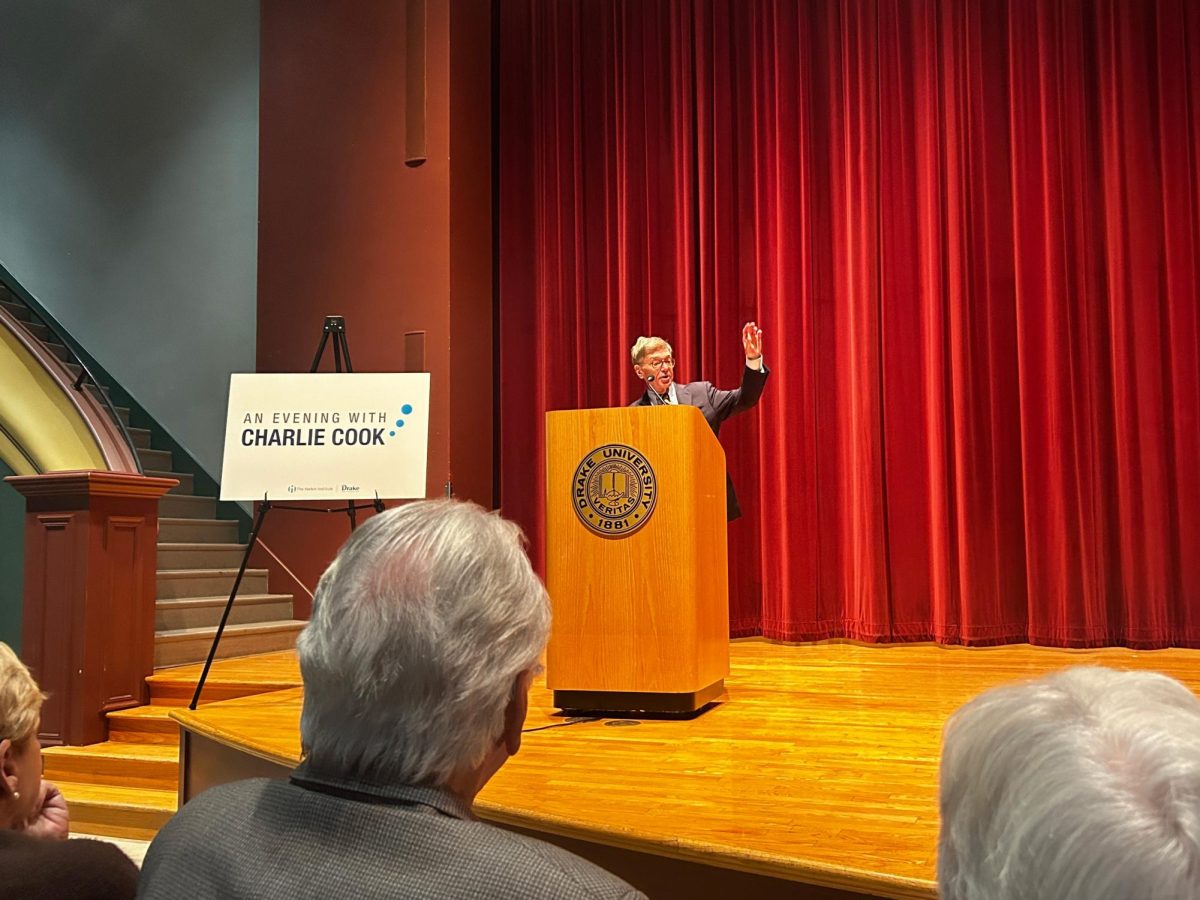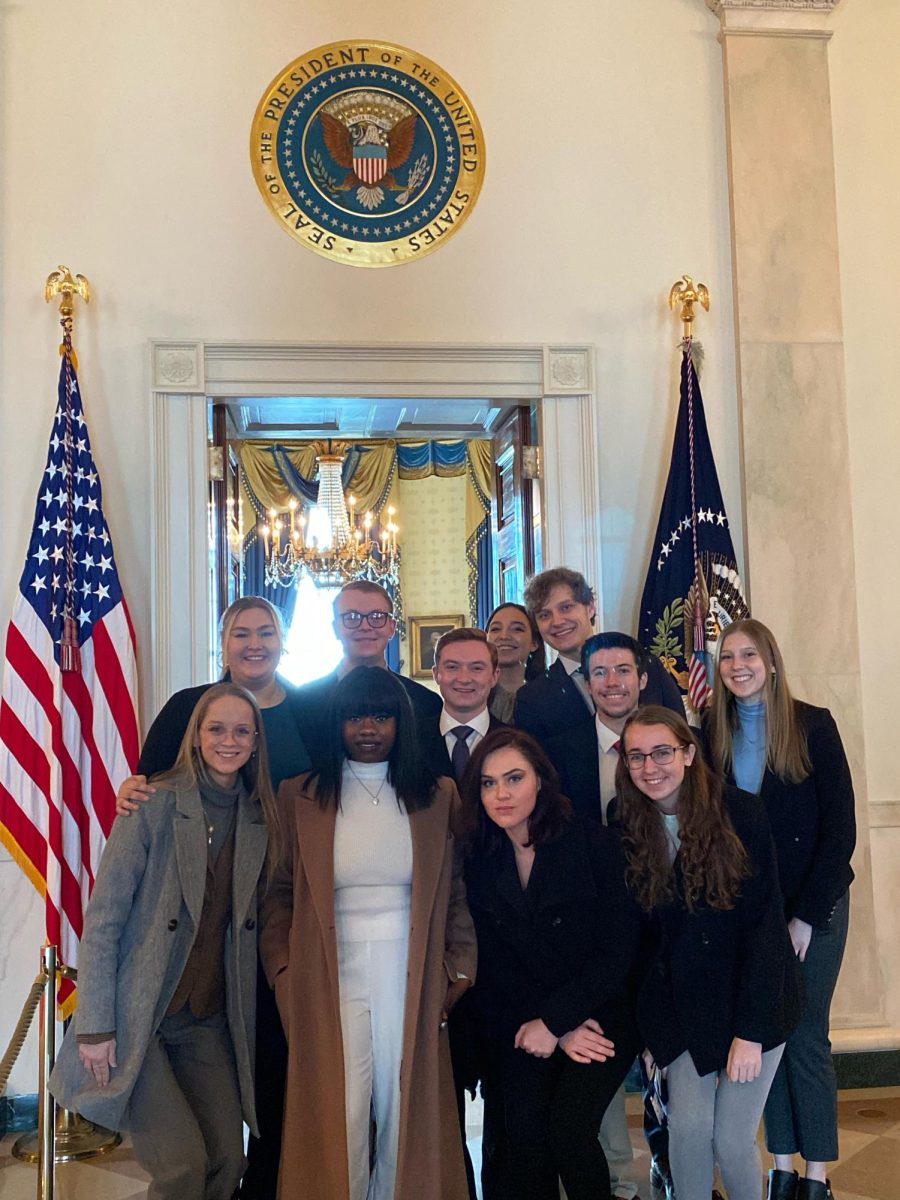BY TIM WEBBER
It’s a bit of a cruel irony, isn’t it?
This is one of the most pivotal elections in our lifetime, and many of us wish that it was already over three months ago.
There’s no sense including a detailed exposition in this space, because we all know these candidates far too well and probably decided who we would vote for before the party conventions this summer.
Instead, let’s move past the remaining week of the campaign, move past Election Day and move straight into Nov. 9, the day when we’ll all wake up and start trying to pick up the pieces.
Regardless of who ultimately wins, this election has caused severe damage to the entire concept of truth in this country.
Everyone is at least a little responsible for the 2016 electoral fiasco, but let’s start with the two most obvious perpetrators: the candidates.
Hillary Clinton was never going to win any awards for trustworthiness. From the start, her perceived lack of honesty and transparency have been some of the biggest criticisms of her campaign.
I believe the appropriate metaphor is this: Clinton’s campaign is a limousine with opaque windows, and WikiLeaks is a vandal with a sledgehammer and a hatred of limousines.
It can be easy to dismiss Clinton’s problems as Standard Politician Activities, especially next to her opponent, but her problems go further than those of most politicians.
Her critics don’t have to dive too deep to raise legitimate concerns, and if she wins, it’s not necessarily a great precedent to set for future elections.
Remember, Clinton’s email woes would likely be the election-defining scandal if her opponent didn’t run a factory with the goal of producing new and horrifying scandals every week.
So we come to Donald Trump, a candidate who has shown reckless disregard for even the simplest of facts.
Regardless of whether you believe objective truths exist — and neither you nor I have a doctorate in philosophy, so we won’t wade deep into those weeds — Trump’s refusal to acknowledge what appear to be objective truths in numerous audio and video recordings of his actions is horrifying.
Trump lives in a reality where if you simply say the word “WRONG” when confronted with your mistakes, then those mistakes are erased from history. Trump never apologizes, because he never admits to wrongdoing in the first place.
Trump is your absolutely infuriating big brother on a 10-hour road trip, changing the rules of a game so that he always wins.
Imagine if your favorite baseball team hit a walk-off home run in Game 7 of the World Series, and then the other team, even when confronted with irrefutable video evidence, refused to acknowledge that the home run ever happened, grabbed the trophy and walked out of the ballpark.
That’s Donald Trump. Electing a demagogue that will never admit to being wrong is the first step back toward “1984.”
The perfect storm
The two candidates aren’t the only ones to blame for 2016. Their supporters and the general public are contributing to the dangerous divide in America’s reality.
I believe there are two major factors creating this perfect storm: the rise of the internet and a lack of understanding and trust in journalists.
Let’s start with the former.
I’ve long contended that the internet is both mankind’s greatest and worst invention. The ability to speak with like-minded people around the world is great, but the ability to tune out people with different opinions is terrible.
Social media, like Facebook and Twitter, have created algorithms that provide us with content that they believe we want to see, a technique that generally creates a more positive browsing experience and a greater likelihood of returning to reuse the service.
But those algorithms also create a personal bubble that can distort your view of reality. Ever wonder why X candidate is doing so well in the polls, even though you can’t think of anyone you personally know who is supporting him or her?
That’s because you’re rarely, if ever, forced to confront different viewpoints on the internet.
Trump supporters and Clinton supporters are isolated from each other online, which allows both groups to reinforce their opinions of the candidates — even when they’re woefully misguided.
We’ve created a dangerous form of groupthink, and it has allowed people to construct alternate realities for themselves that are far from actuality.
The internet is also at least partially to blame for the general public’s mistrust of “mainstream media” and journalism.
Thanks to the internet, anyone can create a website that looks professional and post whatever content they like on that website. For the most part, this is perfectly fine.
But we’re a culture that likes to judge books by their covers, so if a website simply appears legitimate, the words that appear on that website gain legitimacy regardless of their veracity.
Just because radio host Alex Jones, for example, has a fancy microphone and a cool backdrop doesn’t mean he’s as much of a journalist as NBC’s Lester Holt or CBS’ Scott Pelley, but don’t tell that to his large group of dedicated followers.
The noise from left- and right-wing media outlets and content aggregators — yes, this includes your favorite political website, probably — is drowning out moderate voices.
It’s so easy to find a respectable-looking website that reaffirms what you hope or fear may be true.
In turn, a sexy navigation bar backs up those so-called facts, in your mind, so that suspicion becomes a fact.
And any source that disagrees with you or forces a readjustment of perspective? Biased.
I’m a journalism major, and I’m worried that there’s a fundamental misunderstanding of what journalism is and what journalists are supposed to do.
See, real journalists — those that can call themselves that without a wink and crossed fingers — report the truth. A lot of times, you’re not going to like that.
But it’s not their job to tell you what you WANT to hear. It’s their job to tell you what you NEED to hear.
I’ve worked in a professional newsroom setting. Journalists talk about politics just like the people in your office.
Like anyone else, they have personal preferences. But in my experience, they don’t let those preferences enter into their work. The outlet I worked for took great care in maintaining impartiality.
It depends on what you define as “mainstream media,” I suppose, but if you’re bemoaning the loss of standards for news sources that are institutions in their cities, please know this: they still have standards.
Moving forward
Now that we’ve slogged through a thousand words of doom and gloom, let’s figure out how we’re going to solve these problems.
It won’t be easy, and for the most part, we can only work to rectify our mistakes on an individual level. But if enough people have learned their lesson, maybe we can prevent another debacle like the 2016 election from ever happening again.
There are two civics lessons that I believe every high school student should learn before they graduate.
The first is the First Amendment. The second is the ability to determine whether a supposed news source or article can be trusted.
Neither was taught at my high school. Both have been badly mangled in this election. We need to learn to swallow our pride and seek the truth.
If a story seems too good to be true, it probably is. If a website is unfamiliar or out of the mainstream, take the time to look into the company and how it handles itself before posting that juicy story to your Facebook timeline.
Be a fact-checker yourself; vet sources and verify statistics. Numbers can be extremely misleading if a writer is careless in how they present them.
Learn how to differentiate between what is objectively true and what you want to be true. And if you’re deft enough to avoid ruining Thanksgiving, try teaching your crazy relatives, too.
This probably won’t work, but you miss 100 percent of the shots you never take.
Let’s also work to adjust our perspectives more often.
A movie in which every shot is filmed from the exact same camera angle would be the most boring movie in existence. There’s a metaphor for life in there somewhere. Take the time to adjust your camera angle. Don’t restrict yourself to your Facebook bubble.
And as for the candidates, there’s not much we can do in these final six days.
One of them is going to win, and that person will likely run again four years later.
By then, I hope voters can send a message that the truth — the objective truth, not merely that which you wish to be true — is to be valued, not erased.


